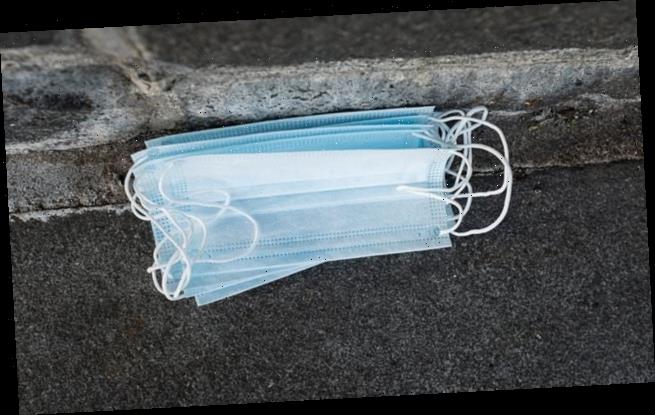FORT SMITH, Ark – Just over three quarters of Brits have seen a rise in littered personal protective equipment (PPE) since the start of the pandemic, new figures reveal.
According to a poll commissioned by countryside charity CPRE, 76 per cent of adults have noticed PPE being littered.
More than a third – 38 per cent – have seen more litter near to where they live since the start of the pandemic.
While 78 per cent would like to see the government take more action to tackle an increase in PPE, which includes masks, plastic gloves and visors.
CPRE is urging the government to support local authorities to create ‘comprehensive refuse and recycling systems’ and promote the benefits of re-usable masks over single-use masks.
‘Litter is a completely avoidable blight that currently scars our countryside,’ said Crispin Truman, chief executive of CPRE.
‘As more people than ever before venture into their local green space or countryside next door, it’s crucial that the government redoubles efforts to tackle litter and stops it pilling up in our beautiful countryside.’
Widely-available masks feature a layer of non-woven bonded fabric to filter microorganisms from the mouth and nose – commonly made of polypropylene.
Although they keep out pathogens effectively, single-use masks have a long afterlife after they are discarded, ending up in landfill.
Plastic waste dropped on the street can get washed into drains and enter local rivers, contaminating water with the pathogen, and even end up in oceans.
And apart from the potential risk of spreading disease, experts warn they can pose a choking hazard to wildlife.
Waste PPE is now a common site in 2020, alongside wrappers, cartons, bottles and cups.
It’s thought that a reusable face cloth covering made at home – which the government advocates on its website with guidance on how to make one – are just as effective as the cheap, mass-produced light green variants sold in supermarkets.
Other high-quality reusable masks, which usually sell for higher prices but tend to last longer, are also a good option.
CPRE is also stressing the need for government to implement its mooted deposit return scheme without further delays.
In more than 40 countries and regions around the world, such schemes – which involve returning used material for a small monetary return – can drive up collection rates for drinks containers to more than 90 per cent.
The UK government plans to introduce a deposit return scheme for bottles and cans in 2023 and it must ensure this timescale does not slip, according to the charity.
‘Hugely successful in other European countries, these schemes are proven to help drive unprecedented recycling rates and ensure thousands of tonnes of litter don’t end up in the countryside,’ said Truman.
‘We need a waste system that is responsive to changes in behaviour – our current system has been failing for a long time, the pandemic simply put a spotlight on the waste crisis and it’s high time ministers stepped in.
‘By investing in whole system solutions to address litter, including a fully inclusive deposit return scheme, we can deal with the long-lasting problem once and for all.’

